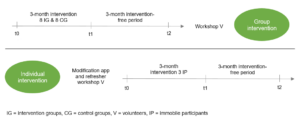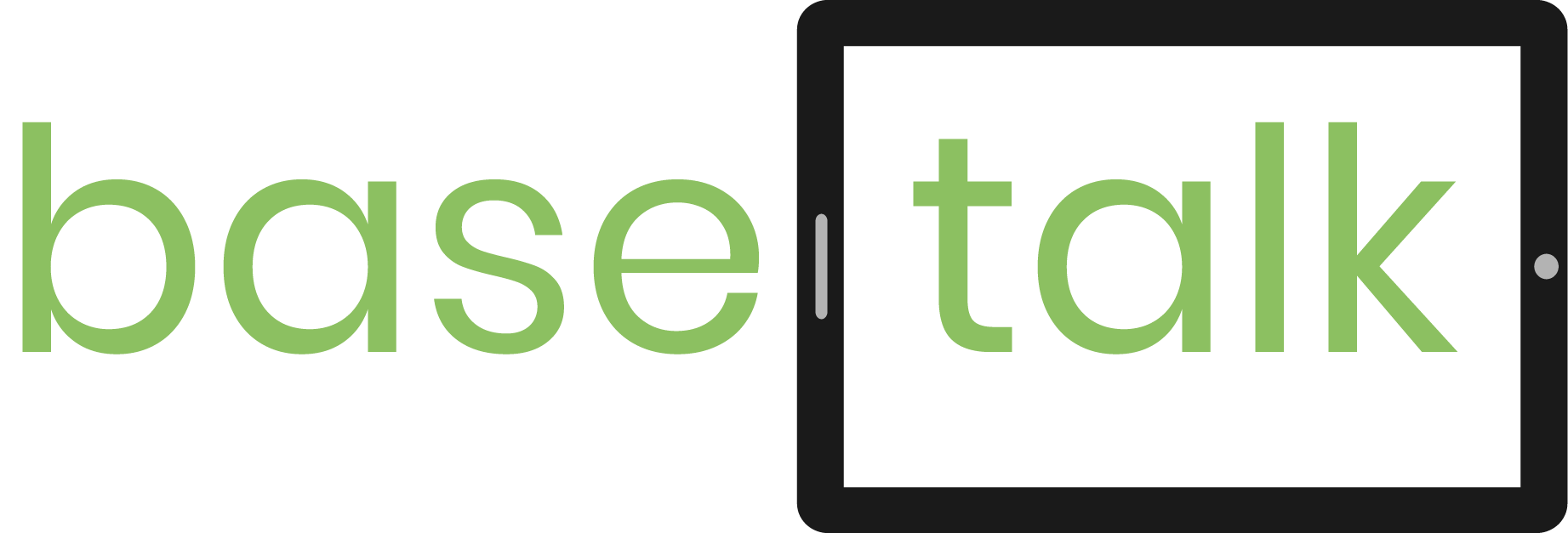General description
BaSeTaLK was a collaborative project of the Catholic University of Applied Sciences Mainz (KH) and the Ostbayerische Technische Hochschule Regensburg (OTH). Project leader at the OTH Regensburg is Prof. Dr. Norina Lauer, Professor of speech and language therapy at the Faculty of Social and Health Sciences and member of the Regensburg Center of Health Sciences and Technology (RCHST). Prof. Dr. Sabine Corsten, Professor of speech and language therapy at the Department of Health Care and Nursing at the Catholic University of Applied Science Mainz (KH Mainz), was responsible for project management and coordination. The aim of the project was the development and evaluation of a tablet-supported measure for biographical work in nursing and senior citizens’ institutions to increase the quality of life and participation of elderly people. Senior citizens in nursing homes were given the opportunity to talk about their life stories. They were supported by volunteers, who used an app developed for BaSeTaLK to guide conversations in groups and individually. The collaborative project was funded by the Federal Ministry of Education and Research (BMBF) within the framework of the funding guideline ‘Quality of Life through Social Innovations (FH-Sozial)’ in the programme ‘Research at Universities of Applied Sciences’, topic area ‘Social Innovations for Digital Inclusion’. It ran from 2019-2023.
Theoretical background of the project
The BaSeTaLK project aimed to expand the market of currently existing prevention services to promote the active participation and quality of life of people in old age and to make use of new possibilities of digitalization. The basis for the research project was the reduced quality of life of people in old age in care and senior citizen facilities. The number of people living in institutional facilities is increasing rapidly. Due to limited mobility and communication, social exchange is often reduced. This can lead to a reduced psychological well-being. Biography work supports adaptation processes, as a review prepared by our working group shows. Memories are activated in biographically oriented conversations. An exchange takes place about telling stories to others, which, as expected, has a positive effect on communication and quality of life. After a successful implementation with the involvement of volunteers, nursing (auxiliary) staff, caregivers, as well as speech and language therapists and occupational therapy staff can be included and trained for the further use and distribution of the offer.
Objectives of BaSeTaLK
BaSeTaLK pursued the following four main objectives:
- Activation of memory processes, promotion of successful identity work by telling about oneself in exchange with others
- Increas of communication and quality of life and psychological well-being of people in old age
- Development and evaluation of a software (app) adapted to the needs of olderly people to stimulate biographical conversations
- Gain insights into knowledge about how people in old age deal with new media, especially the tablet and the possibilities of digital inclusion
Research design
The procedure was performed as a randomized pre-test-post-test control group design with a follow-up study after 3 months (Fig. 1). Volunteers (V) took part in a preparation workshop on media competence and conversation skills. They led the interventions accompanied by the BaSeTaLK team. They began with a three-month group intervention, which was followed by a one-on-one intervention with immobile participants. A total of 8 intervention groups (IG), 8 control groups (CG) and 8 individual interventions took place.

Figure 1: Study design
Project milstones
2023 January – April
Completion of the E-Learning-Kurs – Publication of results – End of the Project
2022 September – December
Development of a digital training concept (E-Learning-Kurs)
2022 March
audience prize Novartis
2021 October – 2022 September
Analysis and evaluation
2021 June – September
Training of volunteers and Intervention in group settings
2021 February – May
Intervention in individual settings
2021 January – February
Training of volunteers
2020 October – January
Conception and planning of the intervention
2020 October
Usability test
2020 March
Team growth through three student assistants
2020 January – July
Agile app development process in focus groups
2019 December
Start as core team (management and project staff)
